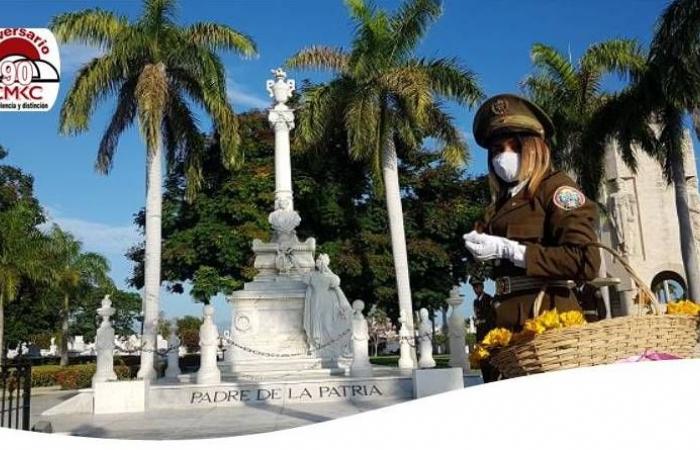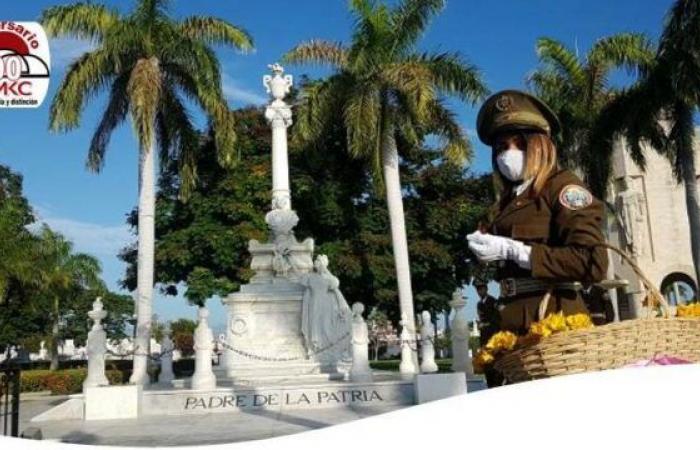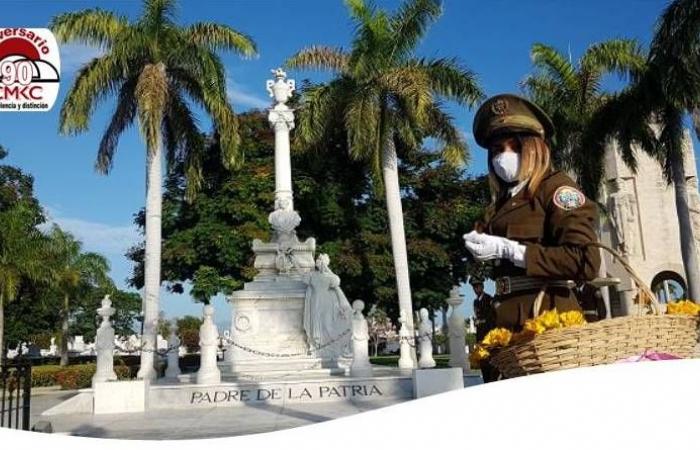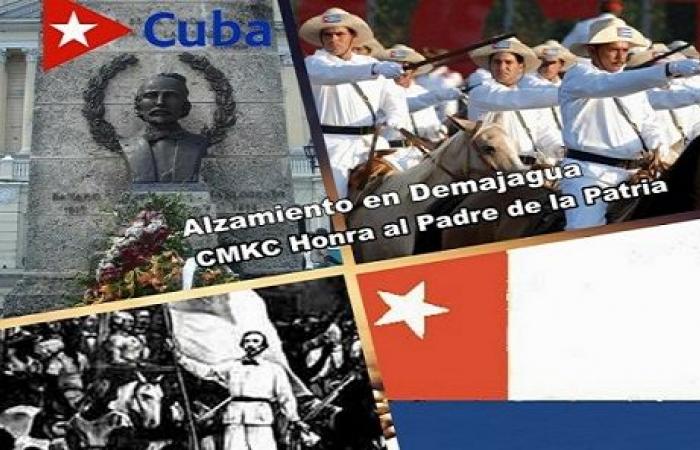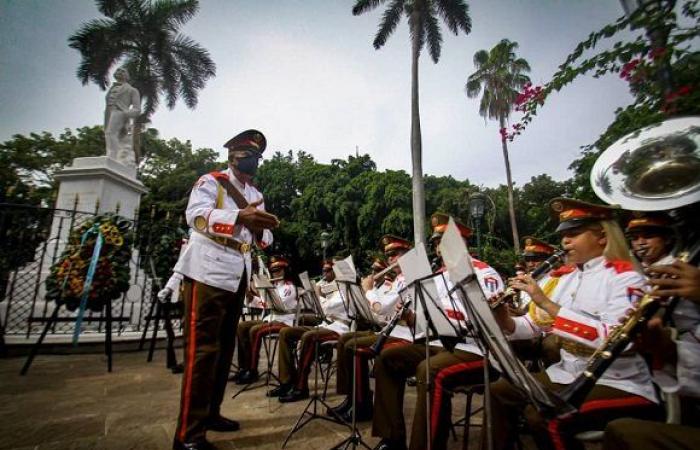

Photo: Santiago Romero Chang
Birth of the Father of the Nation, Carlos Manuel de Céspedes – It was the night of Sunday, April 18, 1819, when in an aristocratic mansion in the then colonial Bayamo the cry of life of the man who was born to be a landowner by family inheritance was heard, and who On the other hand, against all odds, he would become “the first of the Cubans who managed to give his country and his countrymen homeland and honor.”
This is how Carlos Manuel de Céspedes came into the world, under torrential rain, whose very existence would become a “downpour” of continuous emotions and titanic audacity, which even at the distance of 203 years from his birth, shake us inside.


And it is difficult not to shudder before the epic heroism of a man-legend capable of the greatest sacrifices of pocket and heart, in the name of the emancipation of his land.
A man-nation who challenged with his own resources a metropolis much superior in forces and military weapons, who managed to unite rich and poor in the jungle, who called slaves “brothers” for the first time, who turned a mill into a altar of freedom, and that the responsibility of an entire people was placed on his shoulders, as the eternal Father of the Country.
Céspedes was also a true man, who never received the salaries due to him for his services while he served as President of the Republic in Arms, who endured irreparable losses without claiming any benefit for his family, and who was able to face the most harsh hardships rather than renouncing the unity of Cubans or even one of its principles. He was, in essence, “the sovereign incarnation of sublime rebellion,” as the colonel of the Liberation Army, Manuel Sanguily, described him when he died.
In fact, there is so much feat shining through his exemplary career that it is often forgotten that, alongside the hero, there also lived the imperfect man, of deep loves and various contradictions, whose steely word and tempestuous genius earned him both enemies and admirers.
In that human volcano that, as Martí expressed, “…made us all live,” Cuba has a reference of dignity and decorum that we cannot ignore in any of our daily battles.
Even now, when interventionist interests are intensifying on the Island with campaigns of hate and uprooting, Céspedes’ response – more than a century and a half ago – to that same old enemy, comes to us as a moral banner: «Our motto is and It will always be: independence or death. Cuba not only has to be free, but it can no longer be a slave again.


The father of the country Carlos Manuel Perfecto del Carmen de Céspedes and López del Castillo
The Father of the Nation was a Cuban revolutionary lawyer who began the wars for independence in Cuba against the colonial regime of Spain, proclaiming on October 10, 1868 his determination to independence or death and the freedom of his slaves.
Céspedes is considered by all Cubans the Father of the NationHe was also a Major General of the Cuban Liberation Army and the first President of the Republic of Cuba in Arms.
He died in combat against Spanish troops.
A few years after the child was born, the Céspedes family moved to a family farm; where he develops his childhood. For most biographers, this change was a consequence of an attack by corsairs on Manzanillo that had repercussions on the rich Bayamese families, who moved for a time to their mountain estates to find safety.
On the other hand, for José Maceo Verdecia, the quintessential Bayamese historian, settling on Céspedes’ father’s estate was due to the need to recover his diminished fortune.
In any case, the first five years of the boy’s life were spent in the middle of nature, pampered and cared for by a black slave. This she served as her nurse and fed her imagination with the inexhaustible oral tradition of the region, full of stories and legends of güijes (jigues in the East), mothers of water, lagoons inhabited by babujales and mysterious towers.
Back in Bayamo he wrote his first letters in a little school run by an almost elderly woman. Reading, writing and catechism were the fruits of that initial teaching of hers. He then went to the Convent of Our Seraphic Father where he was welcomed by the friars as a disciple. In 1829, at the age of ten, he entered the convent of San Domingo; where he studies Latinity and Philosophy.
Also, for another two years, he studied Latin Grammar at the convent of San Francisco, in the city itself. According to his university record, his grades in these first studies were very high.
University studies
Like every son of a good family, he moved to Havana to pursue higher education. For three years the young man dedicates himself entirely to mastering the different subjects. At the Real y Conciliar Colegio Seminario de San Carlos, where years ago the priest Félix Varela and the Bayamese scholar José Antonio Saco gave their luminous lectures, Céspedes perfects, among other disciplines, his knowledge of Latin while exercising physically in sports. .
On March 22, 1838, he obtained a Bachelor’s degree in Civil Law from the Royal and Pontifical University of Havana. It is significant that he completed them through the “full faculty” modality, that is, he shortened the duration of the baccalaureate and submitted to the rigor of a large number of prestigious examiners.
The form chosen by him was the most difficult and the most expensive, as it required the applicant to pay high fees to each of the examining professors and numerous gifts to all who participated in it. But with the said title in hand, a minor degree of Law at the time, one could not practice law in Cuba. It was necessary to obtain a bachelor’s degree and, even better, a doctoral degree. These will be his next teaching goals.


He returned to Bayamo and the following year, on the same day he turned twenty, he married his first cousin María del Carmen Céspedes. Ten months later, on January 3, 1840, the first son was born, who was named in honor of his father, Carlos Manuel de Céspedes y Céspedes. María del Carmen and Oscar were also born from this union.

